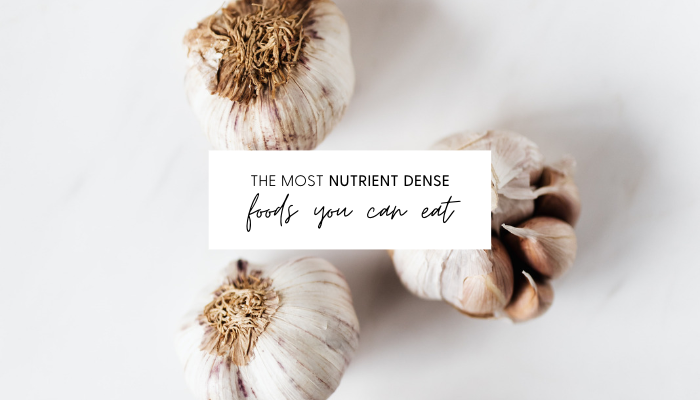We all need nutrient-dense foods. The most nutrients dense foods are very high in nutrients for the number of calories they possess. Adding nutrient-dense foods to your diet will help you maximize the number of nutrients you get per calorie. Spend your money wisely by picking the foods with the most nutritional value.

Nutrient-dense foods contain vitamins, minerals, and antioxidants—all of which help your body perform at its best. Now, let us look at most foods with high nutrients and what are these magical foods.
Here are some of the most nutrient-dense foods you can add to your diet.
Spinach
Spinach contains vitamins A, C, and K, folate, iron, and calcium. Vitamin A is essential for vision and immune function, while vitamin C is a powerful antioxidant that can help protect against illness.
Blueberries
Blueberries are a great source of antioxidants. They’re also high in fiber and vitamins, making them full of essential nutrients that support healthy vision, heart health, and brain function.
Avocado
Avocados are rich in monounsaturated fatty acids that help lower cholesterol, may assist with weight loss, and can even help your blood pressure. They also contain vitamins, minerals, and fiber that support brain function and heart health.
In addition to these nutritional benefits, avocados can improve skin conditions like acne because they have antioxidants called polyphenols that protect against damage from free radicals.
Salmon
Salmon is high in omega-3 fatty acids and protein but low in saturated fat; it contains vitamin D and B vitamins. Salmon is also rich in selenium (which supports thyroid function), zinc (which supports immunity), and vitamin E (which promotes healthy skin).
Sweet Potatoes
Sweet potatoes make a great side dish to any meal, but they’re also a healthy addition to any diet. It’s rich in vitamin A, essential for healthy skin, hair, and eyes; it also contains vitamin C and potassium. In addition, sweet potatoes are low on the glycemic index scale—a system that ranks foods based on their impact on blood sugar—so they won’t spike your insulin levels after eating them (in fact, they may even help lower them).
Garlic
Garlic is a superfood that has been used for thousands of years. Garlic’s health benefits are numerous, reducing inflammation and boosting the immune system. In addition, garlic is versatile and can be tossed into nearly any recipe – so use it as often as possible for its health benefits and flavor.
Dark Chocolate
Dark chocolate is one of the most nutrient-dense foods you can eat. It contains some beneficial heart-healthy antioxidants that help to improve blood flow. Dark chocolate contains:
Magnesium, which improves bone health
Iron, which aids in red blood cell production
Fiber, which help lower cholesterol
Calcium strengthen the bones and teeth
Potassium to maintain electrolyte balance
Remember to look at your food intake and ensure that you provide your body with the proper nutrients. Then, use these nutrient-dense foods as a base for your meals, and you’ll be sure to create meals packed with beneficial nutrients and delicious flavors.
